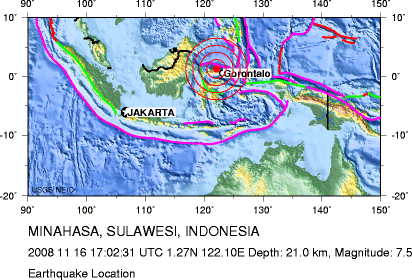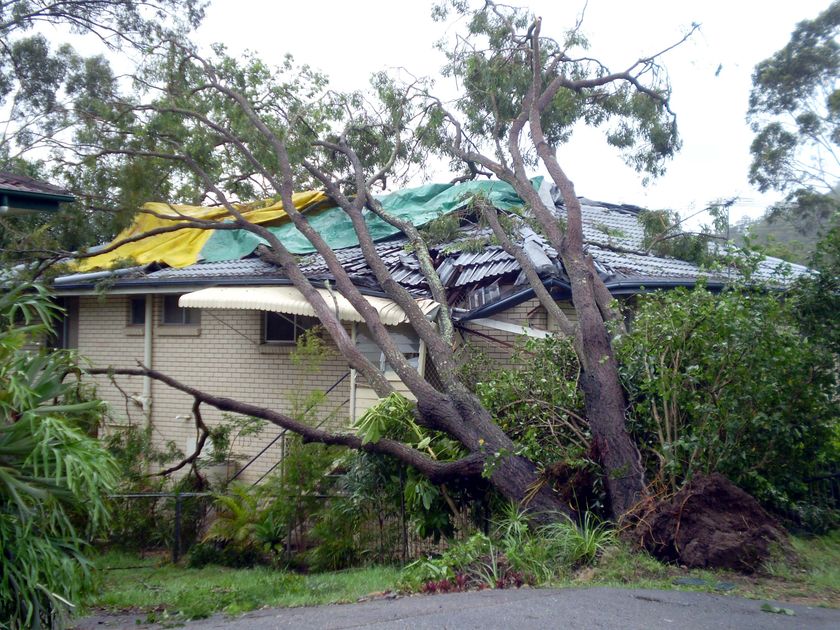Date-Time
* Sunday, November 16, 2008 at 17:02:31 UTC
* Monday, November 17, 2008 at 01:02:31 AM at epicenter
* Time of Earthquake in other Time Zones

© USGS
Location 1.275°N, 122.103°E
Depth 21 km (13.0 miles) (poorly constrained)
Region MINAHASA, SULAWESI, INDONESIA
Distances 135 km (85 miles) NW of Gorontalo, Sulawesi, Indonesia
305 km (190 miles) W of Manado, Sulawesi, Indonesia
1485 km (920 miles) S of MANILA, Philippines
1890 km (1170 miles) ENE of JAKARTA, Java, Indonesia
Location Uncertainty horizontal +/- 7.8 km (4.8 miles); depth +/- 23.8 km (14.8 miles)
